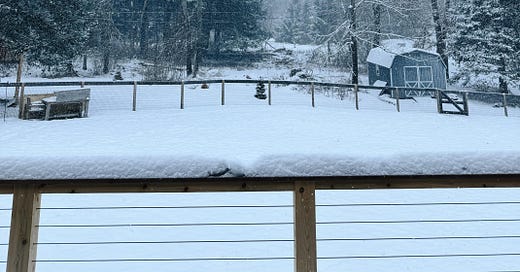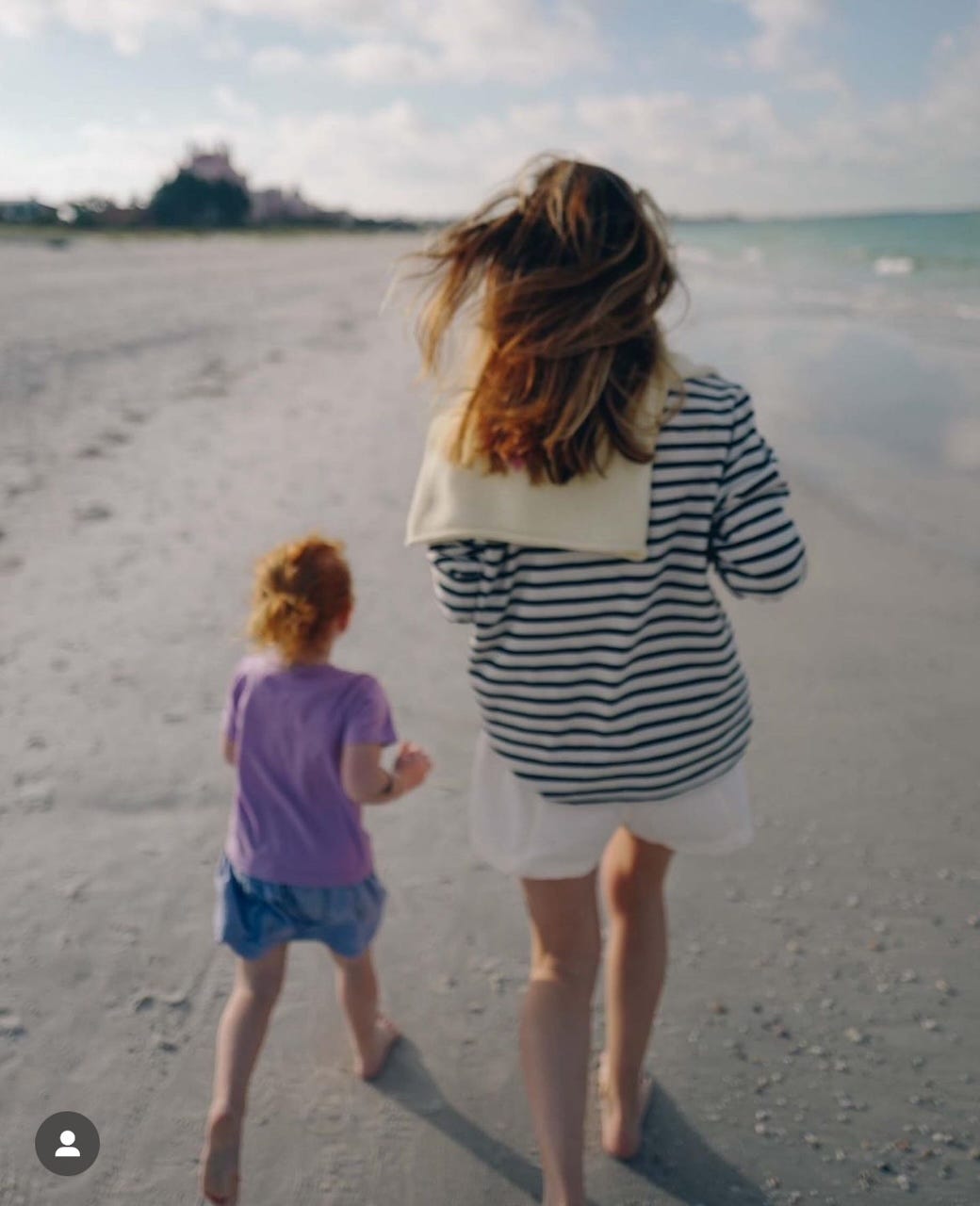On a beautiful snowy Vermont morning a few weeks ago I looked outside and for a brief moment, enjoyed the view. Then I pulled out my phone to take pictures and videos of it.
For the last 8+ years, my life has been shaped by moments like this. Experiencing it through a lens that saw almost every moment as content. It wasn’t until I finally started to peel back the layers of my online identity that I realized how much I wasn’t actually living a life for me, or living at all.
When you become an extremely online person, especially when you make a living as a person on social media, your very existence becomes a commodity. Everyday life from the mundane to the meaningful, it’s all an opportunity, for content.
What you eat, where you live, what you wear, the shampoo you use, the lotion you put on your face, the vitamins you take, the throw blanket on your sofa, the books you read, the food you eat, it’s all part of the personal presentation curated to represent your online self. A version that’s only a fraction of your whole being.
Complicating matters of course is the capitalism of it all. As authentic as one can be when their livelihood depends on money from brands and affiliate links, it all seeps into the person you become. In my case, a shadow of myself.
It’s not simply just about the money, it’s the online self. The one you think everyone expects. The person the algorithm likes.
And so it’s a never ending rat race. A hamster wheel. A life of interrupted moments, because anything beautiful or meaningful must be shared. Did it even happen if you didn’t post it online?
As a writer and a creative, there’s an innate urge to share and create, but a life of “influencing” and making money through selling things muddies the waters.
How do you even know who you really are and what you really like when your online identity is one curated with an audience in mind, and supported by money from brands?
On the first day we took my toddler skiing this winter I took out my phone and captured photos and videos of her first time skiing. Memories preserved to share with family and keep for ourselves. I realize I’m not the only parent to do this.
But then I felt myself leaving the moment. I started to think about how I could capture clips of her skiing throughout the winter, and create a video to turn it into something meaningful for social media. What exactly? I have no idea. Skiing with a toddler is mostly bribery with snacks, and doing it for no more than 45 minutes. And I don’t even post my kid on social media!
I’m simultaneously thankful I have the self-awareness to realize this behavior, and sad that this is something I continue to find myself doing.
Earlier this week I recorded a podcast interview with
of (it comes out in February), and we happened to touched on this very topic. Not 5 minutes after the interview was over, my mom sent me this interview with Dan Harris and Glennon Doyle where she talks about her own struggle with social media, and the need to turn every beautiful moment into content.There was something she said about being on social media that really resonated with me:
We are no longer just the subject, we’re not just seeing, we’re considering…how I’m being seen, and then there’s this idea… of the thing that is observed is changed just by the act of being observed…and I don’t want to live a life that’s not the one I would were it not being observed.”
I find myself now, wondering what kind of life I want to live. For almost 10 years my existence was wrapped up in an online version of me, and even as I felt myself pulling farther away from it, I could never fully escape the box I felt trapped within.
As I unravel the beliefs I’ve held around who I am and what I want, I know this much is true, beautiful moments happen, all the time, whether or not we share them online.







Hello! I am curious if you think this is related not only to your business, but is it also, in general, an age thing (meaning, the need to be on social media and sharing so much of oneself?). I am older than you are (53) so did not grow up with a phone/technology etc. I spent a little time on Facebook from 2013-2016 aka reconnected with a few friends. The Trump election got me off all social (and am still social-free). It was/is a non-issue for me to not be on SM. But I often wonder if, because of the generational difference, people younger than me really have no other baseline of how to live a life without SM? The way I relate to that is I grew up in a rural area where we needed cars to do anything in life, therefore I cannot imagine my life without a car. It just doesn’t compute. Even when I lived in London I still “needed” a car to feel that I had “freedom” to do what I wanted, when I wanted without being restricted by public transport.
I was spending 5 hours per day scrolling on instagram watching other people’s lives and saving recipes I would never cook. I tried a few times to delete the app but didn’t help. I was impressed when Jess wrote she follows zero accounts. I even checked. Sorry, Jess!😁I thought if she did it probably it helped. And I did it! I told my close friends why I unfollowed everybody including my sister and guess what? It worked. The app is still on my phone but I’m not using it anymore. Because I don’t share memes or any stuff anymore I got a lot of time, less depression and unhealthy thoughts and so on. I watch and live my life now not other people’s. Thank you, Jess!